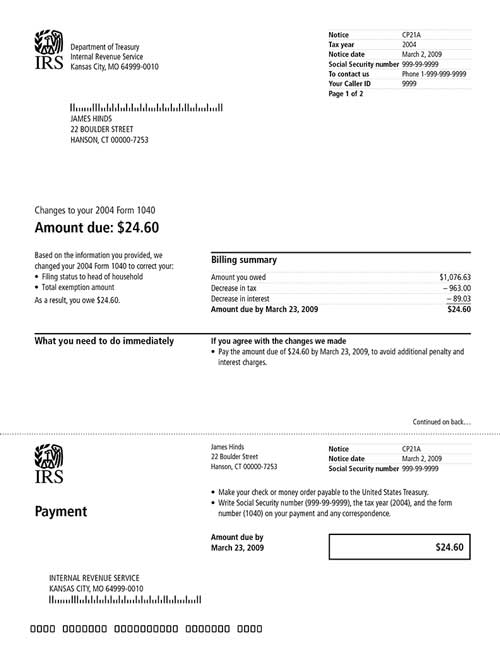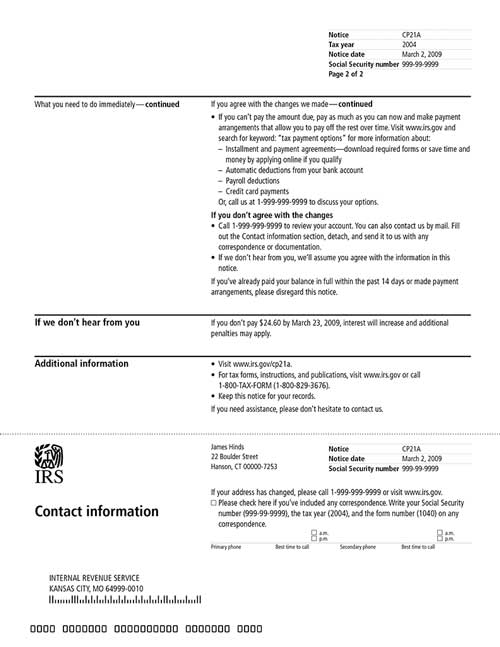IRS Notice CP21A
It is critical to know your rights before turning any information over to the IRS. San Diego Tax Attorney William D. Hartsock offers this advice.
Why did I receive a CP21A Notice from the IRS?
If you have received a CP21A Notice from the IRS, it is usually in response to an amended tax return you filed. The changes in your amended return resulted in you owing additional tax. If you did not file an amended return, it is possible that someone is using your identity without your permission.
This could affect any Income Tax Audits & Appeals that you are involved in, as well as IRS Tax Litigation or Tax Collections actions.
Whenever you receive a CP21A Notice, you should:
- Read the CP21A Notice carefully, especially the part that details changes the IRS made to your return. Compare the information provided in the CP21A Notice to your amended return to make sure that all of the changes reflected in the amended return have been made.
- If all the changes in your amended return have been made and you agree with the amount owed, pay the amount owed in full by the date specified in the CP21A Notice.
- If all the changes in your amended return have been made and you agree with the amount owed but are unable to pay the full amount owed, pay as much as you can and contact the IRS to arrange a payment plan for the remaining balance. Be aware that the IRS can and likely will assess interest and penalties on the unpaid balance if you do not pay the full amount by the due date stated in the CP21A Notice you received.
- If it does not appear that the IRS made all the changes requested in your amended return, contact your tax preparer or a tax law professional like the ones at www.TaxLawFirm.net to discuss how best to proceed, given the unique facts and circumstances in your case. Initiate contact with a professional as soon after you receive the CP21A Notice as possible, because you generally have 30 days from the date of the Notice to notify the IRS in writing of your contentions.
Answers to Frequently Asked Questions:
If I am not able to pay the full amount of tax I owe by the due date, will the amount of my tax obligation increase?
Interest will accrue on an unpaid tax balance beginning on the day after the tax is due. Also, you will be assessed a late payment penalty if the full amount of tax you owe is not paid on the day it is due. With respect to both interest and penalties, the due date is the last date on which you could file the tax return that is at issue, including extension requests.
The following images are an example of what an IRS Tax Notice CP21A actually looks like.
This sample notice is for example purposes only. The case facts and figures on your notice will vary according to the specifics of your case.




Comments (0)